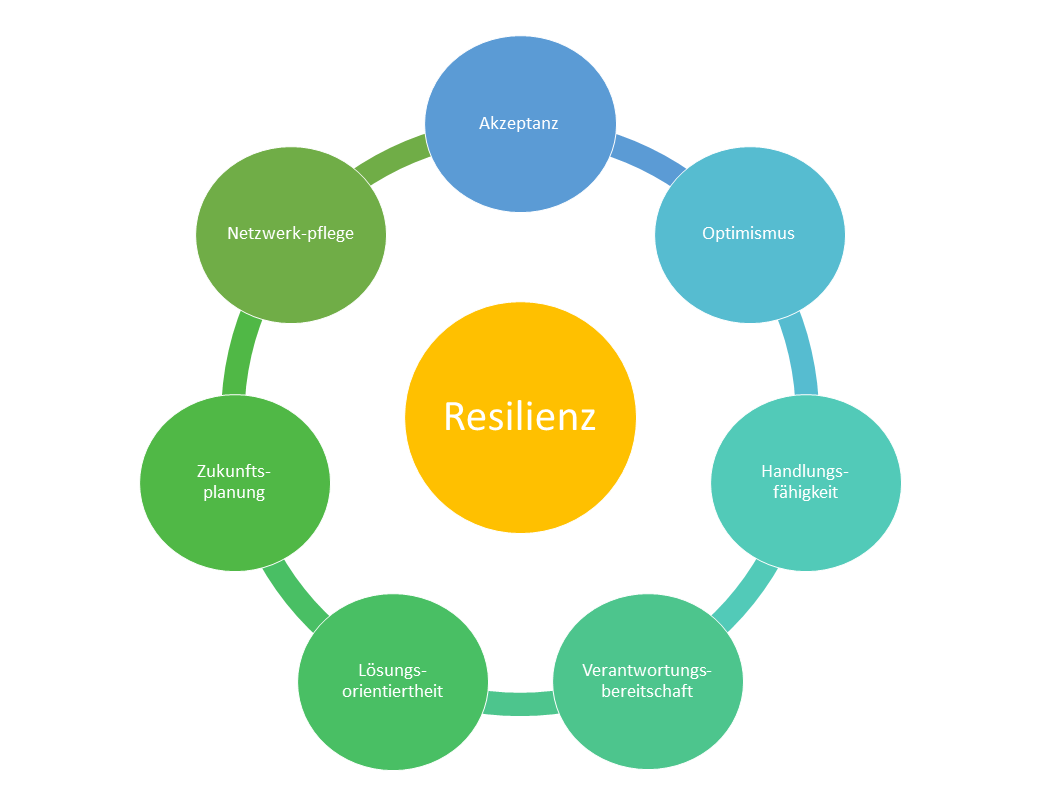Inner Resilience
Want to handle crises and unexpected events better? These 7 factors boost your resilience.
Inner Resilience
Most of us have experienced setbacks and misfortunes. These are significant events in our lives. Depending on the type of setback, they can be hard to accept, manage, and process. Some feel overwhelmed and think they can't handle it, fearing it might break them. This increases the risk of developing a mental illness like an anxiety or addiction disorder, or depression.
Others are more resilient and seem to handle setbacks more "easily," returning to their routine faster. From the outside, this might look cold or "hardened."
But it's not about being emotionless; it's about inner resilience. This is what we call resilience.
What Does Resilience Mean
We mentioned "inner resilience" earlier. That's essentially what resilience is.
Resilience is the ability to overcome setbacks without major harm and gain strength and energy for positive growth.
The 7 Pillars of Resilience
Certain factors are key to inner resilience. They're known as the 7 pillars of resilience.

1. Acceptance
A personal crisis or professional setback can happen, and we can't change that. Usually, it's temporary. So, it's important to accept the situation as it is.
2. Optimism
Optimism helps us draw energy for our development. If we can take something positive from each crisis, it helps us cope better.
Becoming more optimistic can be practiced. For example, keep a journal and write down three good things each day. This regular practice shifts our perspective towards positive events.
3. Ability to Act
This involves self-awareness and recognizing our role. Admitting we don't want to stay in the "victim role" lets us act and face the situation. We start to control our actions instead of letting the crisis control us.
4. Willingness to Take Responsibility
After the ability to act comes the willingness to take responsibility. Resilient people reflect on their situation, draw conclusions, and decide how to move forward responsibly.
5. Solution Orientation
People with low resilience often look for reasons for their problems. Resilient people look for solutions instead.
6. Future Planning
Instead of just letting things happen, we should actively plan our future. Setting achievable goals gives us something tangible to focus our energy on.
7. Networking
Networking means maintaining social contacts. Friends, family, mentors, and even coaches and psychologists. Sometimes we can't get out of a crisis alone, no matter how hard we try. Asking for advice or help is no shame. Whether it's advice from friends and family or professional help. Seeking help is a sign of strength, not weakness.
Conclusion
Resilience isn't innate. Inner resilience is ideally shaped in childhood through upbringing, family environment, and peer interactions.
Everyone handles crises and setbacks differently, and that's normal. To prevent depression or other mental illnesses, it's important to strengthen our resilience. Lows are as much a part of life as highs.
If you want to emerge stronger and more positive from a crisis, you can practice resilience. Resilience trainers like Tobias Blanke can help. They assist in developing new thinking and action patterns, fostering newfound or rediscovered skills, and showing ways and exercises to strengthen inner resilience.
